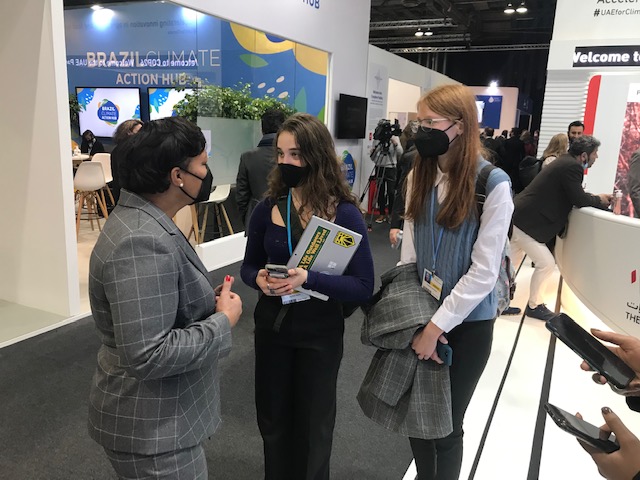
Despite the long lines and issues the planners have had getting the 25,000+ attendees into the Scottish Event Center for COP26 in a timely manner, the day’s events proceeded with strong statements and concern about why some of our world leaders are having trouble comprehending the severity of the climate crisis and taking stronger action. After thanking Prime Minister Boris Johnson of the UK and COP 26 President Alok Sharma, UN Secretary-General António Guterres at the COP26 World Leaders Summit led with these words:
“The six years since the Paris Climate Agreement have been the six hottest years on record.
Our addiction to fossil fuels is pushing humanity to the brink.
We face a stark choice: Either we stop it — or it stops us.
It’s time to say: enough.
Enough of brutalizing biodiversity.
Enough of killing ourselves with carbon.
Enough of treating nature like a toilet.
Enough of burning and drilling and mining our way deeper.
We are digging our own graves.”
In the backdrop of these words stands the reality that the collective of governments has yet to agree on a precise date for phasing out fossil fuels. The collective also has fallen short of agreeing to a Global Methane Pledge. India and Indonesia among others are refusing to agree to phase out coal and are negotiating for development banks to mobilize more funding for climate change mitigation and adaptation before doing so. And current collective GHG emissions reduction commitments fall way short of the IPCC recommended 1.5 degree Celsius limit, and will only get us to 2.7 degrees Celsius.
China, India, Russia, Australia and Saudi Arabia have issued either weak new plans or none at all to cut carbon emissions from fossil fuels this decade. India is committing to net zero emissions by 2070 – when IPCC scientists have warned that we need to reach net zero by 2050. The United States, which has an ambitious target of cutting emissions roughly in half by 2030, is struggling to pass legislation that could ensure meeting that goal.
Xi Jinping, President of the People’s Republic of China, who declined to attend along with President of Russia Vladimir Putin and President of Brazil Jair Bolsonaro, will be offering a written statement outlining China’s commitment to combat climate change.
Today’s Seven Generations Ahead/It’s Our Future highlights included:
-Youth delegates Charlotte Meyer and Lily Aaron spoke with New Orleans Mayor LaToya Cantrell about why New Orleans understands the severity of the climate crisis and its commitments moving forward.
-The team listened up close to U.S. Special Presidential Envoy for Climate John Kerry talk about the urgency of the crisis and the need for countries to lay out better plans, while suggesting that this year’s conference should set us up for stronger commitments and better plans for next year. Kerry stated, “Glasgow was never going to be, you know, the definitive one meeting.”
-All five It’s Our Future youth delegates (Charlotte Meyer, Ali Khan, Lily Aaron, Sophie Ball and Jelena Collins) were interviewed by NPR’s London affiliate.
-The team had close encounters with Bill Gates and the President of Nigeria, Muhammadu Bahari.
-The team met with Kingdom of Tonga representative Uili Lousi, who invited us to a special BBC taping tomorrow on Tuesday, Nov. 2nd.
Stay tuned for more updates.
-Gary Cuneen
